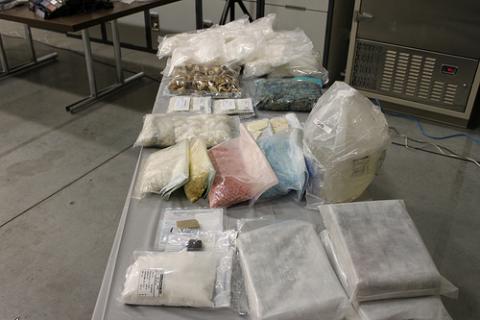Amy Winehouse's death should change how we deal with addiction

Yesterday (26 July), singer-songwriter Amy Winehouse was laid to rest in her native London. For years, the public watched the troubled star battle with severe drug and alcohol addiction. Surprisingly, before her rise to stardom in the mid noughties, not only was Amy not a drug user, but she was avidly anti-drugs.
The story of the girl’s life changed and personal factors and relationships combined to send her down a slippery slope to drug addiction. Since then, it seems that for many people, even her own mother, Amy’s eventual demise was only a matter of time.
The loss of a much loved, well respected star to drug addiction, and all the attention given to it, is an opportunity for us to look at the way in which we deal with addiction in this country.
Surely, we have to stop the criminalisation of addiction. Addiction is a disease, that, like a cancer, can easily take over a body, destroying the person that once was there. Russell Brand, a reformed drug addict and friend of the late Amy Winehouse, over the weekend, implored us to change how we view addiction.
In his moving piece dedicated to his lost friend, Brand describes how “All addicts, regardless of the substance or their social status share a consistent and obvious symptom; they're not quite present when you talk to them. They communicate to you through a barely discernible but un-ignorable veil… The priority of any addict is to anaesthetise the pain of living to ease the passage of the day with some purchased relief.”
Perhaps the greatest tragedy about drug addiction is that the best attempts of family, friends and other loved ones to cure the addict from their addiction are rendered useless unless the addict themselves can muster up from somewhere inside the fight to survive, something which drug abuse tends to kill.
TV presenter Davina McCall, who also suffered from drug addiction, took to Twitter following the news of Amy Winehouse’s death, acknowledging the tragic loss and also imploring those in need of help to seek it. McCall, now a successful and hugely popular British TV personality and mother of three acts as a beacon of light to addicts - there is life beyond drugs. But for the majority of us, who are not drug addicts, what can we do to stop this blight on our society?
Drugs in Ireland are often linked inextricably to crime, corruption and gangland warfare. For this reason, many people have limited sympathies for addicts- after all- they have chosen this path, haven’t they?
The Netherlands – which has one of the lowest rates of drug related deaths in Europe - has a policy which tries to control drug use rather than enforce stricter laws which are doomed to failure. The country spends over €130 million annually on facilities for addicts. In addition, since 1998, the country has facilitated heroin-assisted treatment, whereby addicts are injected with synthetic heroin in a safe environment, in lieu of introducing addicts to other opiates such as methadone.
Portugal, not normally known to be as liberal as the Dutch, also liberalised drug policy in 2001, decriminalising the possession of drugs. According to a 2009 report, drug use since decriminalisation has remained roughly the same but the number of drug related deaths has significantly decreased.
In the midst of the current economic catastrophe, why should the government worry about drug addicts? The fact of the matter is, that even putting the humanitarian aspects aside, to follow the footsteps of drug liberalisation policies in the Netherlands, Belgium, Portugal, Germany and even to some extent, the UK, not only would we be saving lives, we’d also be saving millions that we currently spend policing the violence and social disruption of the underworld. Drugs will, unfortunately always be there and no amount of euros spent can ever fully get rid of them. We do, however, have the chance to control the problem. A recent report from The Global Commission on Drug Policy stated unequivocally that “the war on drugs has failed, with devastating consequences for individuals and societies around the world.” They suggest that the global drug problem is “a set of interlinked health and social challenges to be managed, [not] a war to be won.”
For Amy Winehouse, she didn’t succeed in controlling her problem. Saying in her 2007 single Back to Black that “I take, a troubled path… my odds are stacked,” it seems as though she had in many ways realised the full destructive potential of her addiction. The tragedy surrounding the loss of this talented young girl has many lessons, for individuals, but also, for us as a collective nation, to rethink how we cope with and manage drug policy and drug addiction.
Image top: governmentofalberta.
